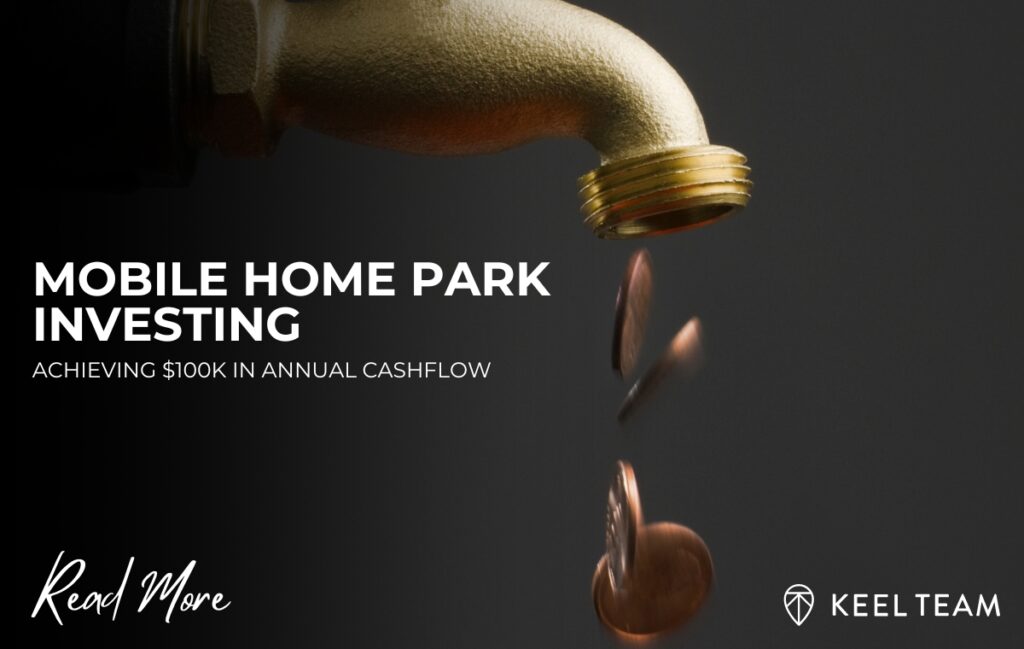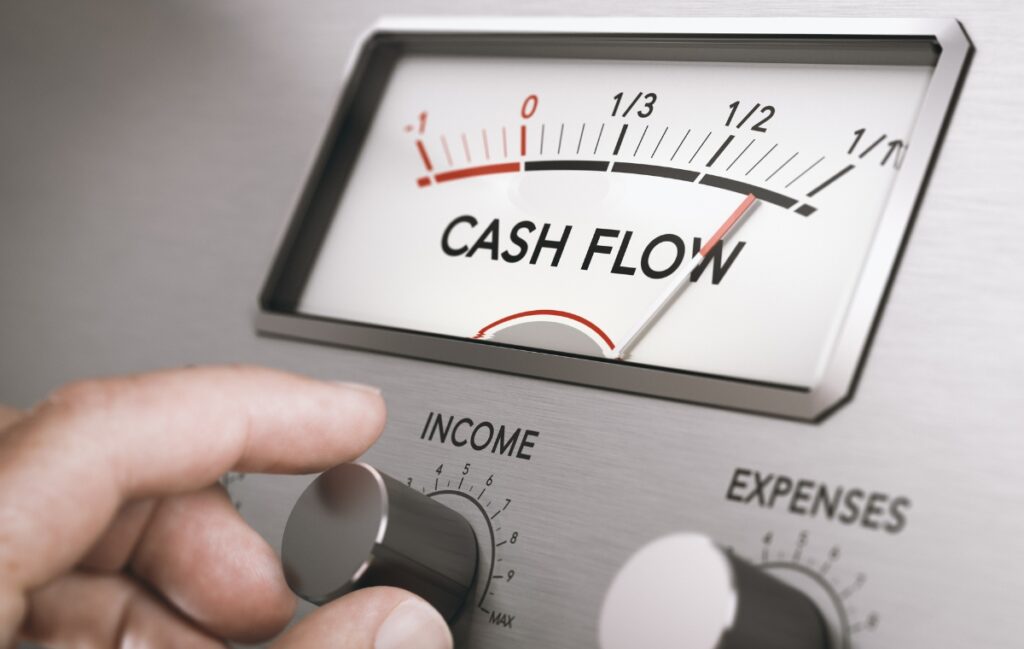Mobile Home Park Investing: Achieving $100k in Annual Cash Flow
-
 Tristan Hunter - Investor Relations
Tristan Hunter - Investor Relations

Introduction
One of the most common questions regarding mobile home park investing is, “Can you make $100,000 per year on a single asset?” Many investors seek alternative investments that provide more predictable and significant cash flow compared to the stock market. With average stock dividends yielding around 2.5%, one might need approximately $4 million in stocks to achieve this, which requires earning around $8 million pre-tax. This scenario seems unrealistic for most investors. However, mobile home parks could offer a more feasible path to this financial target.
Understanding Cash Flow and Cash-on-Cash Return
When investors ask if they can make $100,000 per year, they usually mean actual cash flow—money they can pocket, not just theoretical gains on paper. Paying down $8,333 per month on a mortgage technically results in $100,000 per year, but these funds are not accessible until the property is sold or refinanced, which could take years. Additionally, to pay down $8,333 per month, one would need a property costing around $3 million, requiring a down payment of about $1 million. This discussion focuses on generating $100,000 per year in cash flow, not principal reduction, assuming most buyers don’t have $1 million in cash for a down payment.
What the Target Property Might Look Like
To achieve this cash flow, the property must allow for an increase in rental income by $100,000 per year. In mobile home parks, this is often achieved by increasing rents across multiple lots. To generate $8,333 per month from rent increases, the property needs a sufficient number of lots. For instance, a 10-space mobile home park would require an $833 monthly increase per lot, which seems unrealistic. A more manageable strategy is to increase rents by up to $50 per month annually. To achieve $100,000 in five years, total rent increases should reach $250 over that period, requiring roughly 34 occupied lots.
Capital Involved with Mobile Home Park Investing
Purchasing a mobile home park with around 34 occupied lots might cost approximately $1 million, with a down payment of around $200,000 through local lenders or seller financing. This amount appears far more attainable than the $4 million needed for stocks. Some investors might negotiate lower down payments with sellers or use alternative financing structures like a Master Lease with Option. However, sticking to the original plan simplifies the strategy.
Download Top 20 Things I’ve Learned from Investing in Mobile Home Parks. It’s FREE!
By Andrew Keel
The Strategy for High Cash Flow Mobile Home Park Investing
Increasing lot rents usually results in the additional income falling directly to the bottom line. Existing rents cover operational costs, typically with expense ratios of 30% to 40%. Therefore, each dollar of rent increase primarily contributes to net income. To account for potential increased costs, setting aside principal and cash flow from the down payment can cover any additional expenses. Assuming the property can service its debt and operational costs, all increased rent falls to the bottom line. Raising rents by $50 per month for five years in a 34-space mobile home park can potentially achieve the $100,000 annual cash flow target. The simplified strategy includes:
- Purchasing a mobile home park in a market that supports annual rent increases of $50.
- Buying the mobile home park at a price that covers the mortgage and all operating costs.
- Ensuring the mobile home park is large enough for meaningful income increases (34 lots or more).
- Implementing the rent increase plan.
Why This Strategy Might Work
Arbitrarily increasing rents in real estate often leads to tenant loss due to better alternatives. However, mobile home park lot rents are typically low, averaging $280 per month due to factors like “mom-and-pop quantitative easing,” where owners haven’t raised rents in line with inflation. Adjusted for inflation, lot rents from the 1950s to 1970s would average around $500 per month—almost double the current level. Therefore, there might be room for rent increases while still providing affordable housing compared to other options.
Sustainability of This Model
In luxury goods or highly competitive markets, raising prices can have negative consequences. In mobile home parks, offering affordable housing with minimal competition makes rent increases more sustainable. Apartments often cost around $1,600 per month, so delivering a product at $500 per month, even after a rent increase, remains attractive. This affordability leads to high occupancy rates regardless of rent levels.

Flexibility and Alternatives
Achieving $8,333 per month in income can vary based on property size and market conditions. Larger mobile home parks, like a 100-space mobile home park, might reach the $100,000 annual target faster. Smaller mobile home parks, such as a 17-space property, might take longer, up to ten years. Investors can adjust their strategy based on property size and market conditions.
Not All Mobile Home Parks Are Suitable
Not every mobile home park can achieve this level of cash flow. To succeed, the mobile home park must have:
- Proper infrastructure, density, and location.
- Sufficient quantity of occupied lots.
- Market conditions where current lot rents are well below market rates.
- Suitability for bank financing at favorable terms.
Conclusion
The goal of making $100,000 per year in cash flow from a single mobile home park seems practical and based on strategic planning. Mobile home parks uniquely position investors to achieve potential cash flow due to low initial rents and high demand for affordable housing. While this plan requires careful selection of the right property and market, it typically offers a feasible alternative to traditional stock market investments for generating potential income.
Are you interested in learning more about mobile home park investing? Submit your details below and get in touch with Keel Team. We’re here to help!
Learn more about mobile home park investing.
Interested in learning more about mobile home park investing? Get in touch with us today to find out more.
Disclaimer:
The information provided is for informational purposes only and is not investment advice or a guarantee of any kind. We do not guarantee profitability. Make investment decisions based on your own research and consult registered financial and legal professionals. We are not registered financial or legal professionals and do not provide personalized investment recommendations.

Tristan Hunter - Investor Relations
View The Previous or Next Post
Subscribe Below 👇





